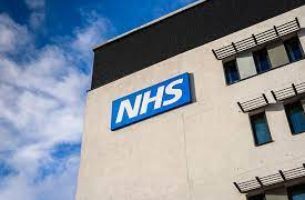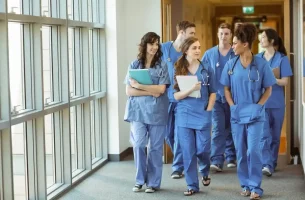When should I see a doctor about diarrhoea? In most cases, you do not need to see a doctor. It will clear up on its own. There is more information about when to see a doctor later. How to get rid of diarrhoea You usually don’t need to do anything. Diarrhoea will go away. Why? […]
Read MoreWhen should I see a doctor about a chest infection? Chest infections – often called upper respiratory tract infections (URTIs) – often follow colds or flu. Most, like colds and flu, are due to viruses. The main symptoms are: A chesty cough – you may cough up green or yellow sputum Wheezing and shortness of breath Mild […]
Read MoreAnxiety and depression: what’s the difference? Amongst other things, depression causes feelings of sadness, hopelessness, and reduced energy. Anxiety creates feelings of nervousness, worry, or dread. Although the two conditions are different, you can have both at the same time. What are anxiety and depression? Put simply .. Anxiety is a problem related to fear […]
Read MoreWhat are the 7 NHS regions? The NHS in England (called, imaginatively, NHS England) has seven regions who support local systems to provide more joined up and sustainable care for patients. These 7 regional teams are responsible for the quality, financial and operational performance of all NHS organisations in their region. The NHS England regions […]
Read MoreWhat is an SHO (senior house officer)? ‘SHO’ – is an old term (though still in use!) for a junior hospital doctor in training in the UK, Ireland and other countries. It typically meant years 2-4 after medical school qualification. During this period SHO doctors rotate (change) ward or role every 4 months, making 12 […]
Read MoreWhat is a chest (respiratory) physician – and what do they do? A chest physician – also known as a pulmonologist – is a hospital-baser doctor who specialises in lung and other respiratory conditions. They are not surgeons and don’t do operations. They diagnose and treat diseases of the respiratory system. In addition to your […]
Read MoreWhat is a gastroenterologist – and what do they do? A gastroenterologist is a type of hospital-based doctor called a physician. Physician are not surgeons and don’t do operations. They specialise in diseases that affect the digestive system. This includes the gastrointestinal (GI) tract (oesophagus, stomach, small intestine, large intestine, rectum and anus) as well […]
Read MoreWhat is a cardiologist – and what do they do? Cardiologists are a type of physician. This means they are a hospital-based doctor (who does not do operations). They have had extra training in preventing, diagnosing and treating heart conditions. They are experts on the heart muscle itself (and how it works) and the arteries […]
Read MoreWhat is a urologist – and what do they do? Urologists are a type of hospital-based surgeon. They are experts in the surgical treatment (including operations) of diseases of the urinary tract, including: Urinary tract infections (UTIs) Kidney stones Bladder and prostate problems – including problems with urination (passing wee) Congenital urinary abnormalities – i.e. from birth Erectile dysfunction Kidney, […]
Read MoreWhat is a nephrologist and what do they do? Nephrologists are a type of physician. A physician is a hospital-based doctor that does not do operations (like a surgeon). There are many different types of physician. But nephrologists are experts in the medical (i.e. non surgical) treatment of kidney diseases, including: Chronic kidney disease (CKD) – diagnosing […]
Read More






